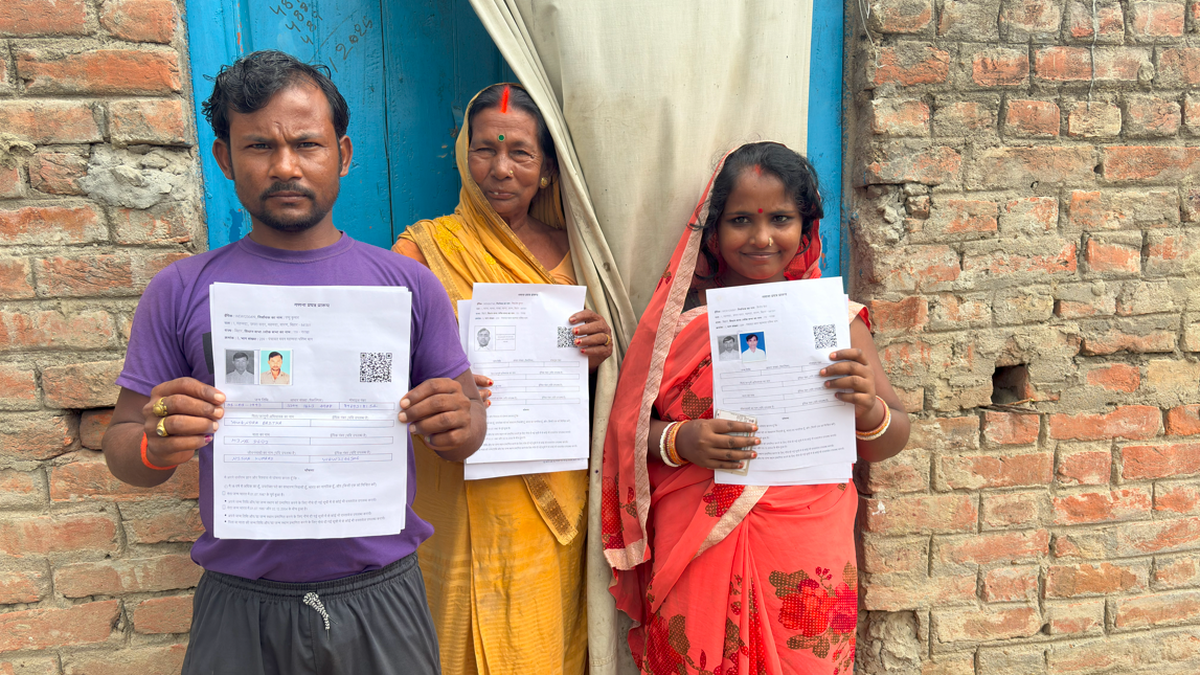
Bihar Voter Roll Revision: Challenges of Illiteracy and Missing Documents Threaten Democracy
Bihar’s Special Intensive Revision (SIR) of electoral rolls, initiated by the Election Commission of India (ECI) on June 24, 2025, has sparked significant controversy as it nears its July 25 deadline. With the state gearing up for the 2025 Assembly elections, the revision aims to eliminate duplicate and ineligible voters. However, the process is facing severe challenges, particularly due to widespread illiteracy and the lack of required documentation among Bihar’s voters, raising fears of mass disenfranchisement. The Hindu.
Illiteracy: A Major Barrier
Bihar has one of the lowest literacy rates in India, with the 2011 Census reporting a literacy rate of 61.8%, significantly below the national average. Many voters, especially in rural areas, struggle to read and understand the complex enumeration forms drafted in formal Hindi, which are critical for voter verification. As noted in posts on X, the forms’ language is often too technical for voters with limited or questionable literacy, and Booth Level Officers (BLOs) face the near-impossible task of explaining the process to millions of households. This has created confusion and hindered participation in the SIR process.
Documentation Woes
The ECI requires voters to submit one of 11 specified documents to verify their date and place of birth, such as birth certificates, passports, or caste certificates. However, five of these documents—Scheduled Caste/Scheduled Tribe certificates, Forest Rights Certificates, Permanent Resident Certificates, the National Register of Citizens (NRC), and Family Register—do not include date or place of birth, rendering them ineffective for verification. Moreover, the NRC and Family Register do not exist in Bihar, further limiting options. Common documents like Aadhaar, ration cards, and voter IDs, widely held by Bihar’s poor, are excluded from the ECI’s list, exacerbating the risk of exclusion, particularly for marginalized communities. According to the 2011 Socio-Economic and Caste Census, over 65.58% of Bihar’s rural households own no land, making land-based documents inaccessible. Additionally, only 2.8% of Biharis born between 2001 and 2005 possess birth certificates, as per the National Family Health Survey, leaving younger voters particularly vulnerable. The Print.
Political Firestorm
The SIR has ignited a political storm, with INDIA bloc leaders, including RJD’s Tejashwi Yadav and Congress’s Mallikarjun Kharge, accusing the ECI of attempting to disenfranchise poor, Dalit, Muslim, and Extremely Backward Classes (EBC) voters. They argue that the timing—months before the November 2025 elections—and the exclusion of Aadhaar and other accessible documents suggest a deliberate effort to skew the voter base. Yadav has highlighted that over 3 crore Biharis, many of whom are migrant workers, live outside the state, making it nearly impossible for them to comply with the tight deadline. The opposition has called for a Bihar Bandh and staged protests, including blocking railway tracks, to demand the inclusion of Aadhaar and ration cards. The Economic Times.
ECI’s Efforts and Criticism
The ECI has defended the SIR, stating it is a constitutional mandate to ensure clean electoral rolls, with Bihar chosen as the first state due to its upcoming elections. As of July 8, 2025, 46.95% of Bihar’s 7.9 crore voters (3.7 crore) have submitted enumeration forms, with over 97% of forms distributed. The ECI has deployed 20,603 additional BLOs to assist with door-to-door collection and introduced an online submission portal at voters.eci.gov.in. Following opposition pressure, the ECI clarified on July 6 that voters can submit forms without documents initially, with Electoral Registration Officers (EROs) verifying eligibility through local investigations. However, critics argue this concession lacks clarity and does not address the core issue of inaccessible documents. Hindustan Times.
Legal and Social Stakes
The Supreme Court is set to hear petitions challenging the SIR on July 10, 2025, with lawyers arguing that the process risks deleting voters with long voting histories due to documentation issues. A sample survey in eight Bihar districts revealed that a majority lack the required documents, with marginalized communities expressing anxiety over losing their voting rights or even citizenship. The survey also highlighted discrepancies between ECI claims and ground realities, urging academics to conduct further studies post-July 25. With 84% of Bihar’s population comprising OBCs, EBCs, SCs, and STs, the process could disproportionately affect these groups, potentially altering the electoral landscape. The Indian Express.
What’s Next?
As the July 25 deadline approaches, the ECI faces mounting pressure to broaden acceptable documents and extend timelines to prevent voter exclusion. The outcome of the Supreme Court hearing and ongoing protests will likely shape the SIR’s trajectory. For now, Bihar’s voters, particularly the poor and marginalized, face an uphill battle to secure their constitutional right to vote under Article 326. Stay updated with Daily Affairs Hub for the latest news on Bihar’s electoral developments.
Related Articles

0 Comments